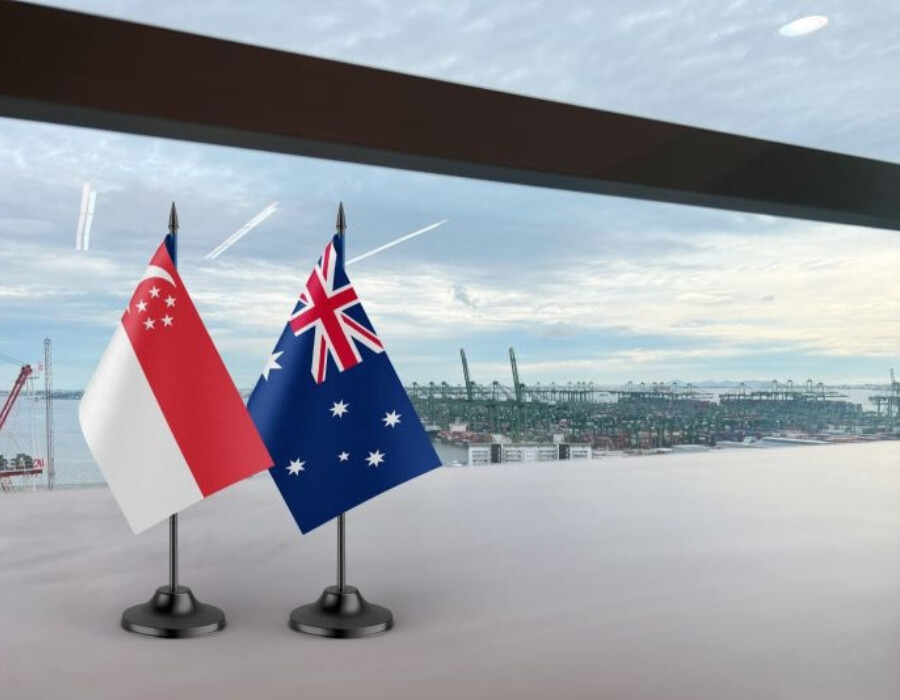
Singapore – In a significant step towards decarbonizing maritime transport, Australia and Singapore have jointly announced the allocation of A$20 million ($12.6 million) to eight pioneering projects focused on green fuel technologies. This funding is part of the Australia-Singapore Initiative on Low Emissions Technologies (ASLET), a collaborative effort designed to accelerate the transition to zero or near-zero greenhouse gas (GHG) emissions within the shipping sector.
The ASLET initiative directly supports the ambitious objectives of the Singapore and Australia Green and Digital Shipping Corridor (GDSC), established to foster a sustainable and digitally advanced shipping route between the two nations. The GDSC aims to drive the adoption of cleaner fuels and digital solutions, ultimately reducing the environmental footprint of maritime trade along this key corridor.
Jointly administered by Australia’s national science agency, CSIRO, and the Maritime and Port Authority of Singapore (MPA), the ASLET grant opportunity, launched in July 2024, attracted considerable interest from the research and industry communities. A total of 32 applications were received from organizations based in both Australia and Singapore, highlighting the strong commitment to innovation in sustainable shipping.
The eight successful projects represent a diverse range of technological advancements crucial for the development of a comprehensive green fuel ecosystem. These projects focus on critical areas such as the production, transportation, storage, and utilization of alternative fuels like hydrogen, ammonia, and methanol. Furthermore, the initiative supports the development of essential safety protocols, environmental monitoring systems, and the electrification of maritime vessels.
Funded Projects at a Glance:
Enhancing Ammonia Safety: The University of Tasmania will spearhead the development of a comprehensive safety and training program specifically for maritime and port personnel handling ammonia as a fuel source. This initiative is vital for ensuring the safe adoption of this promising zero-emission fuel.
Exploring Green Methanol Supply Chains: Hyfuel Solar Refinery will conduct a pre-feasibility study to evaluate the technical, infrastructural, regulatory, and commercial viability of establishing a green methanol supply chain for short-sea shipping. This study will be instrumental in understanding the potential of e-methanol as a sustainable fuel alternative.
Innovative Hydrogen Production: OneH2 Australia aims to develop and demonstrate a modular system for separating, purifying, and compressing hydrogen derived from liquid organic hydrogen carriers. This technology offers a potentially efficient and safe method for transporting and utilizing hydrogen in maritime and port applications.
Electrifying Passenger Ferries: Aus Ships will focus on the development and demonstration of a fully electric ferry capable of carrying 50 to 100 passengers. This project will showcase the feasibility and environmental benefits of electric propulsion for short-distance maritime transport.
Digital Tools for Fuel Transition: RightShip will develop a cloud-based digital analysis tool designed to facilitate the adoption and safe deployment of scalable zero-emission fuels (SZEFs) within the Australia-Singapore shipping corridor. This tool will provide crucial environmental and safety insights for stakeholders.
AI-Powered Safety for Ammonia and Hydrogen: A collaborative project between the National University of Singapore will focus on creating an intelligent, distributed fiber optic system for real-time monitoring of fuel pipelines carrying ammonia and hydrogen. Utilizing AI algorithms to analyze temperature, strain, and acoustic data, the system will detect leaks and predict potential failures, enhancing safety in fuel handling.
Advanced Leak Detection Systems: Another project by the National University of Singapore will concentrate on developing a highly sensitive and rapid-response system for detecting even minute leaks of low-emission fuels. Early detection and alerts are critical for mitigating potential hazards and ensuring environmental protection.
Promoting Hydrogen Fuel Cells for Harbor Craft: ABS/Singapore will undertake a project to accelerate the adoption of hydrogen fuel cells in harbor craft. This initiative will explore the feasibility of producing green hydrogen from seawater to power vessels, contributing to cleaner port operations.
This joint funding initiative underscores the commitment of Australia and Singapore to playing a leading role in the global transition towards a more sustainable maritime industry. By supporting these innovative projects, both nations aim to not only reduce emissions along their shared shipping corridor but also to contribute valuable knowledge and technologies that can be adopted worldwide. The outcomes of these projects are expected to provide crucial insights and pave the way for wider adoption of green fuels and technologies in the maritime sector, bringing the vision of a zero-emission future closer to reality.
[Copyright (c) Global Economic Times. All Rights Reserved.]




























